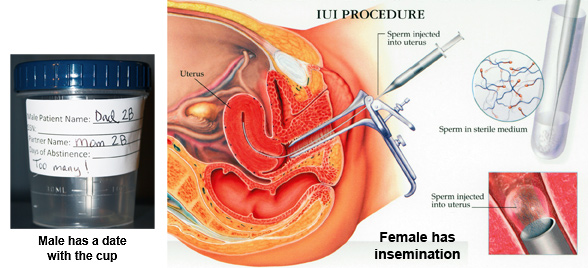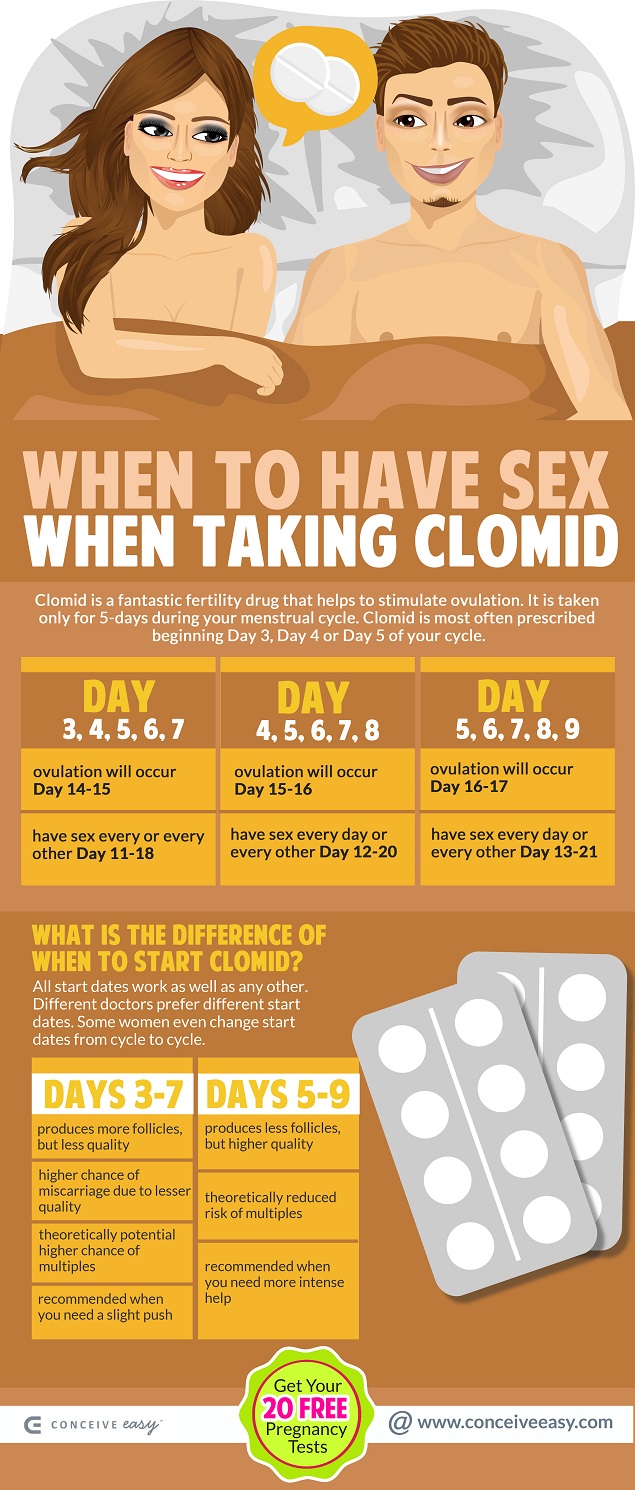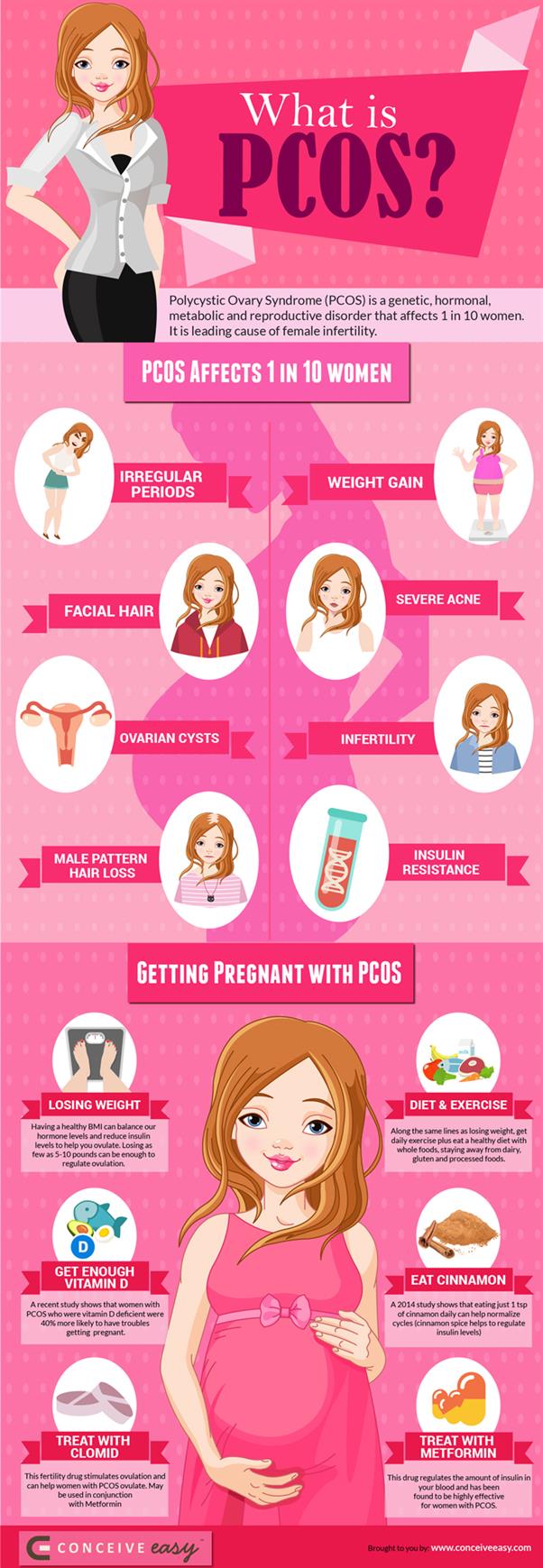![]() The information provided by our expert should not constitute a diagnosis of your condition. Always consult a medical practitioner or healthcare provider for a formal diagnosis. By making use of this content, you agree that ConceiveEasy and the expert assume no liability.
The information provided by our expert should not constitute a diagnosis of your condition. Always consult a medical practitioner or healthcare provider for a formal diagnosis. By making use of this content, you agree that ConceiveEasy and the expert assume no liability.
Clomid is the most popular and common fertility drug on the market today. It is usually very successful in inducing ovulation in most women and it usually doesn’t have many harsh side effects, other than hot flashes, mild nausea, moodiness, sleep pattern changes, or bloating . For this reason, Clomid is usually the first course of treatment for fertility issues. Claim Your 20 Free Pregnancy Tests – Click Here

Clomid works by blocking estrogen receptors which are at the hypothalamus, the area of the brain where hormone regulation is controlled. It may sound odd that a fertility drug is used to block estrogen receptors, but the purpose of that if the body thinks there is less estrogen, then other hormones that are responsible for ovulation need to be stimulated which is the follicle stimulating hormone (FSH) and luteinizing hormone (LH) which it is done by when the right dosage of Clomid is taken.

In simple terms, Clomid encourages your body into releasing an egg, by stimulating the FSH & LH. This forced ovulation is great for women who have trouble ovulating on their own or need to regulate their ovulatory cycles.

So if your doctor has prescribed Clomid for you either to help stimulate ovulation or sometimes as a mere catch-all fertility drug if your infertility issues remain as-yet unexplained, you may wonder when to have sex while taking Clomid. While you are taking Clomid, you will have to have sex on certain days in order to get pregnant. Those days will either be predetermined by your doctor or you might have to figure them out on your own using an over the counter ovulation predictor kit. Taking ovulation predictor kits (or OPKs) will be an integral part of the process, to catch the LH surge when you ovulate. You will want to begin testing by day 8-10.
This will have much to do with when you take Clomid, because that will determine when you will ovulate.

If you have been prescribed Clomid, you will be taking it during your next cycle. Your doctor will instruct you to call them on the day of your period, which is day 1 of your cycle. Your doctor will want to do an examination about 2 days after and finalize the timing of your Clomid cycle. You will be taking the Clomid tablets for a simple 5 day cycle, early on in your ovulatory cycle. Some doctors will recommend you take Clomid beginning on day 3 through day 7. While other doctors will choose a slightly different timeframe, like beginning on day 4 through day 8 or even more commonly, beginning day 5 through day 9.
Whatever your doctor recommends, your Clomid regime will last only 5 days.
Ovulation will then occur 7-8 days after you have completed the treatment. That means if you took your last dosage of Clomid on day 7, you will be expected to ovulate on day 14 to 15. If you took your last dosage on day 8, that means you will likely ovulate on day 15 or 16. If you took your last treatment on day 9, then that means you will likely ovulate on day 16 to 17.
• Clomid Day 3, 4, 5, 6, 7 = ovulation will occur day 14-15
• Clomid Day 4, 5, 6, 7, 8 = ovulation will occur day 15-16
• Clomid Day 5, 6, 7, 8, 9 = ovulation will occur day 16-17
Most doctors recommend starting Clomid on day 5 of your period. After that your doctor will most likely recommend getting an over the counter ovulation predictor kit so that you will know when you are ovulating or about to ovulate. You will want to start taking your OPK about 4 days before your expected ovulation date, so you don’t miss the surge!
When the ovulation predictor kit shows that you are ovulating with a positive double line ovulation test, or about to ovulate, then you will know when you should have sex. The best time to have sex is probably to start one to two days before you ovulate (when the OPK test line is darkening, but not as dark as the control line), so that the sperm will be there to meet the egg when it is released. Your doctor can tell you what to look for on the ovulation predictor kit to tell when you are getting ready to ovulate.

Some doctors suggest that after your period ends, you should have sex every other day or every two days leading up to ovulation. This is so that you will have a steady supply of sperm going to the uterus, making it more likely for you to get pregnant. So, in other words, after you take the last Clomid pill, wait around five days. After the fifth day, begin having sex every other day, and continue that pattern for around a week or so.
• If you have been taking Clomid from day 3 to day 7, then you will want to start having sex around day 11 to 12.
• If you started your treatment from day 4 to day 8, then you will want to start having intercourse around day 12 to 13.
• If you have been taking it from day 5 to day 9, then you will want to start getting busy around day 14.

If you are in a situation where your partner has a low sperm count, and you need to have intrauterine insemination done in order to conceive, your timing will be pinpointed even more. The fertility clinic will likely do blood work to measure LH, and ultrasounds to measure follicle size. If there is a surge, and if the follicle is large enough that it will be ready to be released, then you will have the insemination done on that day.
Of course, these rules are just generalizations, and there is no set in stone rules about when each particular woman should have sex when taking Clomid. Every woman’s body is different, and everyone will react differently to Clomid. Your doctor will be able to help you come up with a plan for when to have sex tailored to your particular case!
But this functions as a good general rule of thumb.

If a couple has been trying to conceive for at least a year and no successful pregnancy has happened, then they will have to see a doctor and get tested to find out what could be getting into the way. If a couple has been trying to get pregnant for a year or more without success, then they are dealing with infertility. Therefore, what will end up happening is that both the man and woman will get tested.
Men will provide several sperm samples and the doctor will examine those. If they are fine, then the woman will need to undergo many tests. The first thing they will want to look for is if there are any hormonal abnormalities, as well as structural abnormalities through blood work and ultrasounds. Even if nothing wrong shows up through blood work, that can be meaningless considering that hormonal levels change often throughout the cycle.
Before a woman is put on Clomid, she will also have to undergo a hysterosalpingogram (HSG test) which is a test to show at least one fallopian tube is open and working properly. If everything checks out fine, then she will start the Clomid treatment during her next cycle.
Women who are not ovulating regularly will most definitely benefit from the right dosage of Clomid.
Clomid will help regulate ovulation and cycles, and help these cycles become more predictable so timing intercourse closest to the time of ovulation can be pinpointed.

For instance, many women who have polycystic ovarian syndrome (PCOS) will not ovulate regularly or even at all, if the condition is severe enough. PCOS is caused by an excess of testosterone in the system which can inhibit ovulation. Occasionally there are cysts on the ovaries. However, the condition can be difficult to diagnose because testosterone levels in women who have it may appear normal in bloodwork. Additionally, these women may also not have cysts on their ovaries.
Many women with PCOS are also overweight, have acne, thinning hair as well as facial hair. However, there are women who do not have any of these characteristics, as well as have normal testosterone levels, and have no cysts on their ovaries that still have PCOS. The fact that they are not ovulating regularly and are getting irregular periods is a sure sign that PCOS is the cause.
The good news is that the right dosage of Clomid will help women who have PCOS ovulate, and be able to conceive by having intercourse at the fertile time.

Women who were also diagnosed with unexplained fertility, where they are ovulating regularly and do not show any signs of having PCOS or any other condition have been helped with Clomid as well. The only caveat here is that Clomid DOES stimulate ovulation, so these women have a greater than average chance of releasing more than one egg at a time – so the possibility of twins skyrockets!
Finally, women who are completely fine fertility-wise but have husbands who have low sperm counts and quality will be put on Clomid in order to time the intrauterine insemination properly. Intrauterine insemination is used when men have a low sperm count.
This way the sperm sample they give the specialist is washed, and a catheter is inserted into the woman’s vagina going right into the uterus, bypassing the distance that sperm would normally travel to meet the egg. This way, the sperm is inserted directly into the uterus where the egg is ready to be released.

Clomid has become the catch-all fertility drug, and countless women owe their tiny bundles of joy to its magic. Now all you have to do is find ways to de-stress, keep eating well, and get as much sleep as you can because you are in excellent hands and the pregnancy that you have dreamed about happening, that baby boy or girl, will likely be around the corner.












Comments